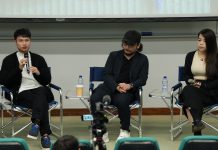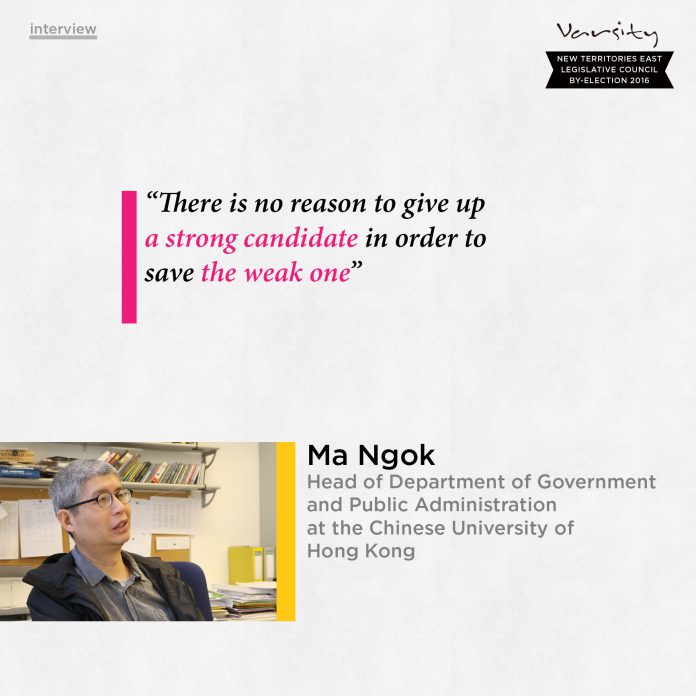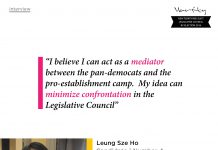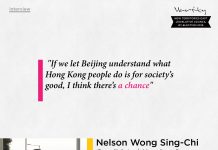The war of words between supporters of Civic Party’s Alvin Yeung and Hong Kong Indigenous candidate Edward Leung may benefit DAB’s Holden Chow in by-election
By Megan Leung
As the New Territories East Legislative Council by-election approaches, Civic Party candidate Alvin Yeung Ngok-kiu and Holden Chow Ho-ding, the candidate for the pro-establishment Democratic Alliance for the Betterment and Progress of Hong Kong, are neck and neck in an opinion poll by the University of Hong Kong’s Public Opinion Program for WeMedia01 .
The program surveyed 500 people, including 130 New Territories East voters, on February 17 and 18. It found that overall, Yeung and Chow both had 14 per cent of respondents backing them. Edward Leung Tin-kei, a candidate from the rising localist group Hong Kong Indigenous, had 8 per cent. Among the New Territories East voters, Yeung had 15 per cent of respondents supporting him, Chow had 15 per cent and Leung had 9 per cent.
Ma Ngok, Head of Department of Government and Public Administration at the Chinese University of Hong Kong, says Chow is more likely to do well in the election. He explains that unless the voter turnout rate was unusually high, just the votes from the pro-establishment camp alone would already be enough for Chow to win.
Pro-democracy voters, on the other hand, have to choose between Yeung and Leung. Some of Yeung’s supporters urge voters to forego Leung in order to send Yeung into Legco, saying that this is the only way to prevent Chow from winning.
The debate became more heated after the founder of the influential satirical youth magazine and website 100Most, Lam Yat-hei urged voters to vote for whom they prefer instead of “voting with tears”, which means voting strategically as suggested by the pan-democratic camp. Strategic voting is one way to prevent splitting votes between candidates with a similar political stance, because split votes may end up with a strong rival winning.
“Whenever there are more than two candidates in the running, you have to consider whether you will choose a lesser evil, or cast your vote to prevent the candidate you least prefer to win the election,” says Ma.
He says the concept of “foregoing Yeung and keeping Leung” does not make sense since it is unlikely that the localist group would have more votes than the pan-democrats.
“There is no reason to give up a strong candidate in order to save the weak one,” says Ma.
He adds that Leung is an “unknown” to many people, and that although Leung takes a more radical approach in dealing with the government than traditional pan-democrats, it does not mean this will work. Many supporters of moderate pan-democrats may not buy this idea, Ma says.
Organization and cohesion are essential for a campaign, but Ma says it has always been difficult for the pro-democracy camp to achieve this. Traditional pan-democrats and radical localists cannot reach a consensus despite having the same end goal of true democracy in Hong Kong. This makes it hard for either Yeung or Leung to win the election, Ma says.
The other candidates in the by-election are Lau Chi-shing, Wong Sing-chi, Albert Leung Sze-ho, Christine Fong Kwok-shan.
The New Territories East Legislative Council by-election will be held on Sunday.
Edited By Julian Ng










































